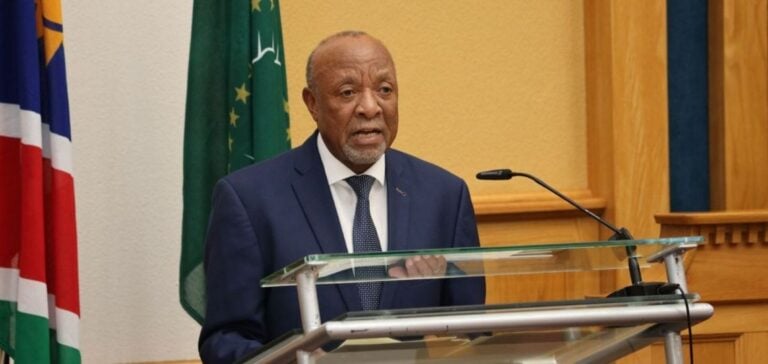Namibia, rich in natural resources and potential for renewable energies, could accelerate its economic and social development by leveraging solar and wind energy. This is the conclusion of a report published today by the International Energy Agency (IEA) in collaboration with Namibia’s Ministry of Mines and Energy. This study is the IEA’s first analysis focusing specifically on this southern African country.
The report, titled Renewable Energy Opportunities for Namibia, was launched at African Energy Week 2024 in Cape Town, South Africa. During the event, several key stakeholders, including Mary Burce Warlick, Deputy Executive Director of the IEA, and Tom Alweendo, Namibia’s Minister of Mines and Energy, highlighted the economic and environmental prospects offered by clean energy.
“Namibia’s world-class renewable resources offer a remarkable opportunity for sustainable growth and socioeconomic advancement,” stated Mary Burce Warlick. She emphasized the importance of strategic investments and collaborative efforts to transform this potential into tangible benefits for Namibians.
Exceptional Solar and Wind Potential
The report highlights Namibia’s unique advantages in renewable energy, notably abundant year-round sunlight and considerable wind speeds in key areas. With low seasonal variability and moderate population density, the country is positioned as an ideal site for large-scale renewable energy projects.
The study explains that accelerating the deployment of these energy sources could transform Namibia’s electricity sector, which currently relies on imports to meet a large part of its demand. By increasing the share of renewables, Namibia could strengthen its energy security, reduce costs for consumers, and improve electricity access in remote rural areas through off-grid solutions.
Benefits for the Mining Industry
Renewable resources also offer substantial benefits for Namibia’s mining industry, which accounts for about 14% of the country’s GDP and consumes 21% of the national electricity. By adopting renewables to power its activities, the mining sector could reduce its energy costs, decrease greenhouse gas emissions, and enhance its competitiveness in a global market increasingly oriented toward sustainability.
The report also underscores Namibia’s capability to produce renewable hydrogen and its derivatives, which could pave the way for a new low-emission regional industry. With large-scale renewable hydrogen projects and international purchase agreements, Namibia could attract substantial investments while developing a skilled workforce.
Key Levers for a Successful Transition
Achieving Namibia’s ambitions in renewable energy relies on three fundamental elements: mobilizing accessible financing to reduce clean energy investment costs; establishing sustainable partnerships with importing countries to develop new markets for low-emission products; and creating transparent and predictable policy frameworks.
The IEA report analyzes how Namibia could combine these factors to harness its energy potential while achieving sustainable development goals. For policymakers, the stakes are high, as these initiatives can not only transform the national economy but also position Namibia as a regional leader in clean energy.






















